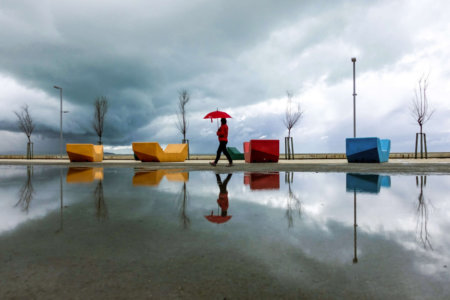
More women are attending universities now, but they still face barriers in accessing educational opportunities compared to males. Cultural and social norms, paired with enduring biases often see them receive fewer and lesser options when it comes to education quality and subjects.
Nowhere is this more stark than at science, technology, engineering and mathematics (STEM) departments. According to a UNESCO report, women make up just 35% of STEM programmes in higher education. Only 3% of students in information and communication technologies (ICT) and 21% in engineering are women. Such data is worrying as STEM careers usually come with better pay — as much as ⅔ more than those employed in other fields (Pew Research Centre) — plus plenty other perks.
If you seek to reverse this trend and want a career in these dynamic fields, make your start at these four European universities below:
Canterbury Christ Church University
Canterbury Christ Church University is celebrating their Diamond Jubilee anniversary of providing 60 years of excellent, innovative and inclusive education this year. Women have always been welcomed and encouraged to study and work here, especially within its STEM (that’s Science, Technology, Engineering and Mathematics) programmes. As many as 17% of students, and nearly 40% of the academic staff at the School of Engineering, Technology and Design (SETD) are female, surpassing industry averages.
In fact, Dr. Anne Nortcliffe – the Head of SETD – was named the Executive Leader of the Year at the Engineering Talent Awards, 2021 for her work in making the SETD an inclusive learning space. Her efforts included recruiting diverse staff and students, designing their curriculum to incorporate all learning groups, and promoting inclusive industry engagement.
At the same time, the new 14.7 million pounds inclusive engineering education and research facility in their namesake city campus – opened in March 2021 – features the latest facilities and equipment. This means inclusive CDIO pedagogy can be used for all course levels.
Students can work on CDIO industry projects to engineer inclusive solutions for social and national/international problems as well. For instance, low energy or efficient manually operated washing machines have made a significant difference to female lives in developing countries, allowing them to access more opportunities to contribute to their family and society.
The following programmes include a Foundation Year: Biomedical Engineering, Chemical Engineering, Mechanical Engineering, Mechanical Engineering (Building Services), Product Design Engineering and Software Engineering.
BRNO University of Technology

BRNO University of Technology is located within Brno, the world’s sixth best university city. Source: BRNO University of Technology, Facebook
BRNO University of Technology has 19,000 students, making it the largest engineering university in the Czech Republic. Their strategic location in the Czech Technology Park, Brno – the “Silicon Valley” of Central Europe – means students enjoy close access to IT companies within the world’s sixth most popular university city.
The investment of some 400 million euros in new buildings, facilities and equipment over the past 10 years has catapulted BRNO to be among the 2.3% of the world’s best universities. This prestigious ranking has allowed their academic staff to work on award-winning scientific projects; their students can even use the latest top-rated equipment.
The university recognises that practical work experience is critically important for students – that is why BRNO has numerous collaborations with companies on projects and study programme content. Foreign internships and global project collaboration translate into more self-confident and better-informed students – evidenced by an impressive 95% of graduates finding work within six months.
BRNO has had a long history of attracting women to its programmes: in 1918, seven women registered to study at the Chemical and Electrical Engineering Departments. Today, you can choose from a large range of courses from these still existing Departments (now Faculties).
ETH Zurich

ETH Zurich is ranked among the world’s best universities. Source: ETH Zurich, Facebook
ETH Zurich’s scenic Alps-view campuses with convenient transport and exceptional teaching and learning infrastructure are the major reasons why over 23,000 highly talented students come to study here from 121 countries. ETH is ranked as sixth best in the world by QS – their interdisciplinary courses train students to solve contemporary world issues through critical thinking, responsible behaviour and teamwork.
ETH strongly believes in the concepts of freedom, individual responsibility, entrepreneurship and an open mind. By offering well-connected research links all over the world and a supportive research environment, Zurich’s students and staff can discover innovative solutions to world problems.
Case in point: Some 520 professors work at ETH, supported by 260 senior scientists. They are involved in Switzerland’s 10 centres of excellence as well – the centres with the most number of ETH professors are the MaP, the AI Centre and the ESC.
More importantly, nearly a third of their students, and around 35% of the full-time staff are female. Yet, ETH wants to see more women joining the natural sciences and engineering, and is rolling out the Gender Action Plan to enhance opportunities for career development and gender aspects in research and teaching.
Tampere University

Tampere University, based in Finland offers many study programmes. Source: Tampere University, Facebook
One of the most multidisciplinary universities in Finland, Tampere University offers almost all internationally recognised study fields. Due to the merger of the University of Tampere and Tampere University of Technology, the university’s research and education have a particular focus on technology, health and society.
Over 21,000 students and 4,000 staff within seven faculties make up Tampere University. More than 100 active research groups and centres – on topics ranging from automation and robotics to tumour genetics – mean students and staff here have the space and facilities they need to participate in strong collaborative research and innovation.
To further strengthen their research capability, and attract more students, Tampere University came up with their Strategy 2030 plan. One of the strategies is highlighting the university’s values of courage, critical thinking, diversity, learner-centredness, erudition-building, openness and responsibility, which help guide the students in their research studies.
Moreover, Tampere – with centrally-located campuses – is voted as the number one study place in the whole of Finland. This robust city, with easy transport access and close to Helsinki and major Finnish cities, offers many options for dining and recreation as well.
*Some of the institutions featured in this article are commercial partners of Study International










